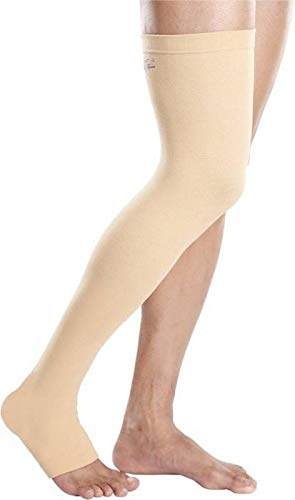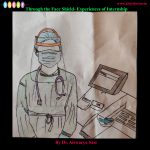As doctors we sit in OPDs and berate patients when they do not follow instructions. Very often we may miss the fact that our solutions are perfect in the ward and useless in the homes of patients
An example of this is patients with varicose veins. This is commonly kept for final year MBBS exams. We learnt all the special tests, complications and management. One of the ways to manage varicose veins is compression stockings. As an intern I watched the postgraduates prescribe them and I was confident that I could do at least this during bond. My first case was enough to make me question myself. My patient was a farmer. I wrote a prescription for stockings and his neighbour brought them from Chennai. The following week he was back again in the OPD with a varicose ulcer and no stockings. I felt that he had clearly not understood my mediocre Tamil. So, I called the nurse to explain. The third time he came the ulcer looked worse and still there was still no stocking. I was at my wits end.

I finally asked with exasperation “Why can’t you do something as simple as wearing stockings?” His answer silenced me. He said “Madam, for you doctors stockings are simple. You will wear them and sit in your clinic. For us it is difficult. I live with my wife she and I are old it is difficult to pull on the stockings. Then we do daily work. Our job is to plant paddy and to take the cows to the lake. The stockings get wet and we cannot work. You tell me some treatment that I can do.” His ulcer eventually healed during Pongal when he was sitting instead of standing only to recur later. I still do not have an answer to his dilemma. I cringe internally every time I tell someone with stasis eczema to wear stockings. It is not the patients who don’t understand us. We don’t understand them
Stockings are not the only issue. People suffering from ringworm are told to wash and iron clothes before use. I wonder how many have water, electricity or irons. Flyers while useful for the literate, are hopeless for the illiterate or those who cannot read the language. Also, they fit the generic patient and do not address the patient as an individual.

Its not just instructions that are difficult to apply sometimes a well written prescription is difficult to fulfil. Patients are started on Insulin in the hospital and are sent home. Sometimes there is no means of continuing the Insulin. We are so afraid of legal consequences that we deprive patients of treatment. Mobile clinics and camps in Tamil Nadu are not permitted to dispense parenteral medications that includes insulin and several PHCs do not have it. As a result, patients started on Insulin must travel to get this. This implies a loss of wage to reach the clinic and get the bottle. Patients are naturally reluctant to lose daily wages that put food on the table for something that is not very symptomatic. Its heartless when we say that their inability to come for follow up from far is not our problem.

We can order 200 odd investigations to protect us from the law but is it right to order the battery for someone who has mortgaged their cow or wedding ring for the latest monoclonal antibody. When we discharge them, we say, “Avoid crowded places. Do not eat food from outside.” This is the point when we know that they will take the crowded bus with patients of tuberculosis to their village. Sometimes we recite stuff only to save our own skin rather than to educate. We check mark items on the NABH accreditation list. This is when medicine loses its humanity and empathy and becomes monotonous.
We need to stop feeling misunderstood and find creative solutions. Fancy maternity homes have customised birth plans for deliveries. I hope there is a time when we have enough doctors and good innovators to work side by side to customise treatment plans to the individual. Only then, can we bridge the chasm between the text book and the patient.
The author is a Dermatology resident and has worked previously in the tribal areas of Tamil Nadu









